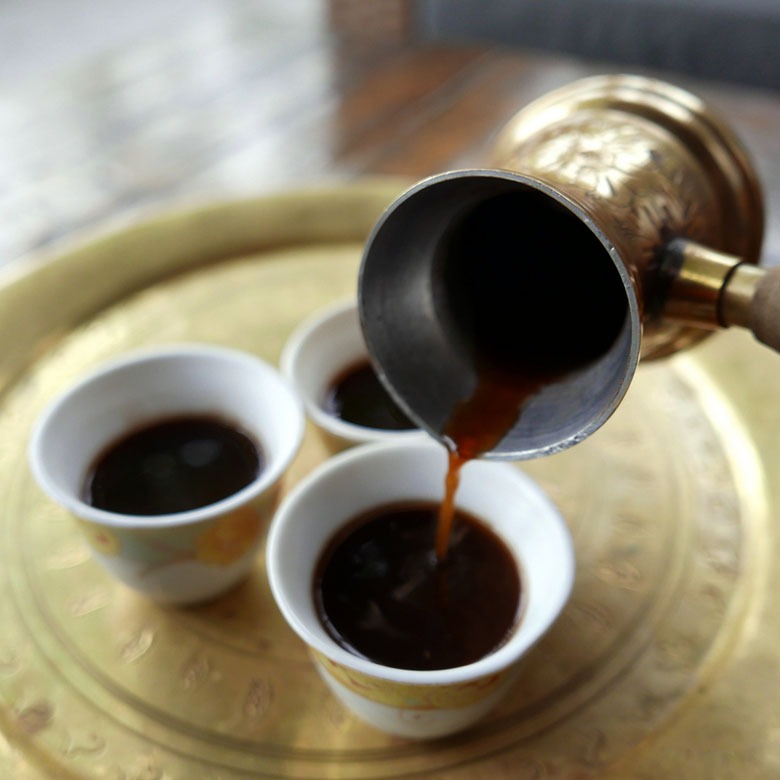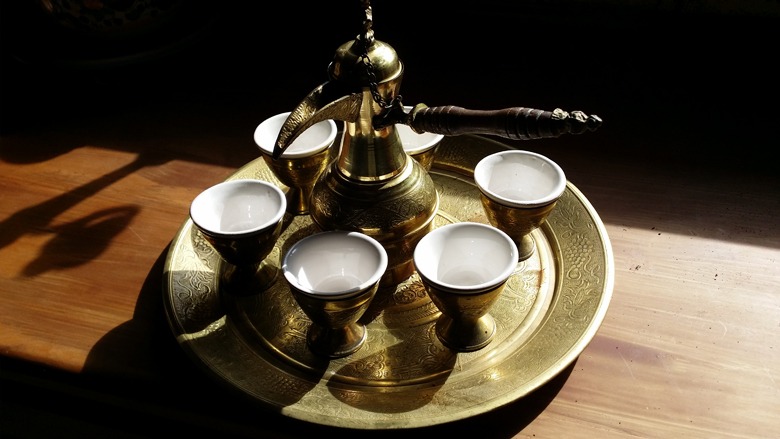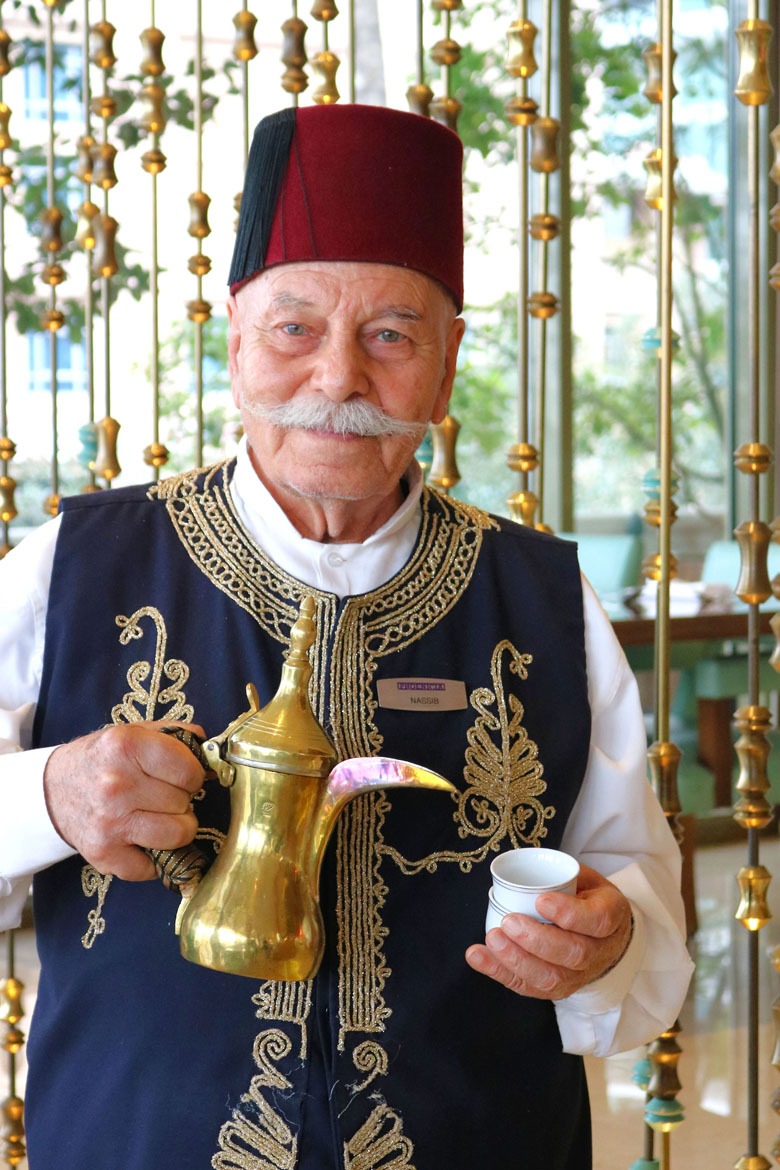There’s something rather magical about Lebanon’s community of kahwajes, a tradition that has survived centuries. Rita Ghantous takes a closer look at the people behind the coffee.
 Photo: Yum List
Photo: Yum List
With their folkloric costumes, the clicking sound of the Arabic coffee cups (fanajin) they carry in their hands and the mesmerizing aroma from their traditional Arabic coffee pot (dallah), kahwajes never go unnoticed. Their presence intrigues the young, while offering the old a brief trip back in time.
Proud of their craft, they spend hours preparing their coffee, meticulously brewing the coffee beans at home and adding their own secret ingredient to the mix: that is why the coffee of each kahwaje has its own unique flavor.
Kahwajes are frequently found in public areas, street markets and at touristic sites, where, for a small fee, they offer their delicious brew to passers-by. They are wonderful storytellers, who take great pleasure in talking to their customers.
Traditional Lebanese restaurants often employ kahwajes to serve a complimentary cup of coffee to guests after an appetizing meal. They are testament to the hospitable and generous nature of the Lebanese.
In certain rural regions, kahwajes play an important part in ceremonies, from the festive, like weddings to the sad, like funerals.
 Photo: Roger Parkinson
Photo: Roger Parkinson
Author Timothy Hutchins, who refers to coffee as the “wine of Araby,” details in his book “Coffee Culture” the social importance of the kahwaje to the Arab community, noting their role in popularizing and spreading coffee culture in the 15th and 16th centuries.
Artists such as renowned Lebanese painter Hassan Jouni have captured the essence of the typical café of Beirut in their paintings.
For a country where the past and present intertwine, and where coffee is inherent to local custom, the kahwaje is a reminder of Beirut’s bygone years and living proof that the tradition is very much alive.
 Nassib Selman Talih has been serving coffee at Phoenicia Hotel Beirut’s Mosaic restaurant for almost 60 years. He is the longest-serving kahwaje in Lebanon.
Nassib Selman Talih has been serving coffee at Phoenicia Hotel Beirut’s Mosaic restaurant for almost 60 years. He is the longest-serving kahwaje in Lebanon.
LoadingThe tradition of drinking Arabic coffee continues to play an important role in Lebanese culture. It is a symbol of generosity and warm hospitality, qualities that this nation is famous for. Offering guests a cup of coffee at the end of their meal is intrinsic to the Lebanese restaurant experience. It reaffirms how proud we are of our heritage and I think that is why I have been in this profession for so long.
Being a kahwaje has given me the opportunity to meet incredible people; I have rubbed shoulders with presidents, royalty and celebrities. I have served coffee to thousands of guests with the same dedication and love yet I cherish those who visited the hotel as children and later returned as adults to see me again and drink my coffee.
I take great pride in my craft and plan on serving coffee to guests for as long as I can.

